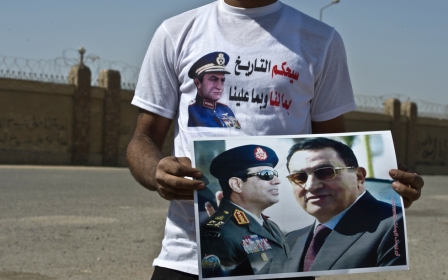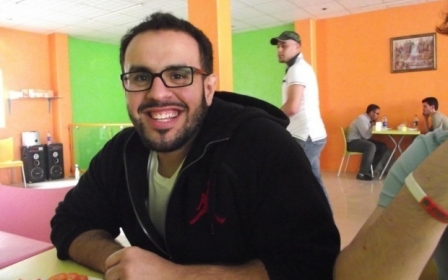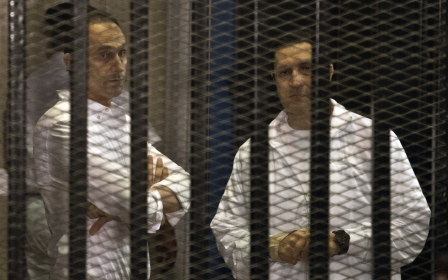Egypt awaits 'parliament of the president' after polls

Egyptians will begin voting on Sunday for a parliament expected to fall firmly in line behind President Abdel Fattah al-Sisi, who has crushed all opposition since ousting his elected predecessor in 2013.
The much-delayed election - the previous assembly was dissolved in June 2012 - will be in two phases between 18 October and 2 December.
Former army chief Sisi won the disputed 2014 presidential election despite having no political party of his own, and insists he has no political allies.
But experts say most of the more than 5,000 candidates overwhelmingly back him.
"They will not oppose President Sisi's policies. They want to stay close to him as he is at the heart of the regime," said Mustapha Kamel al-Sayyid, professor of political science at Cairo University.
Political expert Hazem Hosny agreed: "This parliament will be a parliament of the president.
"It's really a parliament... to keep things as they are, to give an image of democracy," he said.
Fatwa urging high turnout
Sisi has urged a large turnout, saying that "active participation of all segments of the society is important for the election," a presidency statement said on Tuesday.
His call was echoed by the Dar al-Iftaa religious body, which said it was a sin according to Islamic law if a citizen did not vote in the parliamentary elections.
Many Egyptians are tired of political turmoil since the 2011 toppling of veteran leader Hosni Mubarak and feel apathetic toward the two-phase vote.
While still army chief, Sisi overthrew Mohamed Morsi - Egypt's first freely elected leader – in a military coup on 3 July 2013 after mass street protests against his year-long rule.
An ensuing government crackdown targeting Morsi's Muslim Brotherhood movement - which had swept all elections since Mubarak's fall - left more than a thousand dead and tens of thousands imprisoned.
No real opposition
The Brotherhood has now been blacklisted as a "terrorist organisation" and its members banned from contesting elections.
Hundreds including Morsi himself have been sentenced to death after mass trials the United Nations denounced as "unprecedented in recent history".
Meanwhile, scores of policemen and soldiers have also been killed in militant attacks claimed by a group that links itself to the Islamic State.
Voting for the new parliament, the first since 2011, will take place in the absence of any real opposition.
Several secular and leftist movements which have also been targeted in the crackdown are boycotting the election.
The new post-Morsi constitution empowers parliament to move a no-confidence motion against the president and also gives lawmakers 15 days to review all presidential decrees.
But Carnegie Center researcher Nathan Brown said parliament's "ability to use them might be close to zero if the elections result in the fractured and non-ideological parliament so widely expected".
63 percent of Sisi's decisions unannounced to public
And a recent study found that 63 percent of decisions taken by Sisi's government in 2015 were not announced to the public.
More than 27 million people across 14 of Egypt's 27 provinces are eligible to vote in the first phase over two days from Sunday.
Egyptians living overseas vote on Saturday.
The second phase in the remaining provinces begins on 21 November, with more than 28 million eligible voters.
The 596-member parliament will include 28 presidential appointees, with the rest elected under a complex system of independent candidates and party lists.
The electoral system "is known to favour individual candidates who have built tribal and family networks at local levels and not parties," said Paris-based researcher Nathalie Bernard-Mougiron.
'Strong return of Mubarak regime figures'
"We could see a strong return of Mubarak regime figures who are well-versed with this system and who have enough resources at the local level."
State-run daily Al-Ahram has reported that nearly half the candidates were in Mubarak's now-dissolved National Democratic Party.
The Egyptian Front led by Ahmed Shafiq, Mubarak's last premier, is also taking part.
And Ahmed Mortada Mansour, the 34-year-old son of the head of Cairo's Zamalek football club, has gone all out to win votes ahead of the parliamentary elections, fielding many former members of Mubarak's party.
Flush with money, Mansour and his pro-market, liberal Free Egyptians Party - founded by telecoms tycoon Naguib Sawiris - are mounting an ambitious bid to win support for its 231 candidates across Egypt's 27 provinces.
Islamist and leftist parties
"The corrupt have been excluded, but it would have been unfair to reject three million former party members," said journalist Mostafa Bakri.
Bakri is a candidate with pro-Sisi coalition For Love of Egypt, which hopes to win two-thirds of the seats.
The pro-Sisi Salafist Al-Nur party, which backed the army coup against Morsi, is the only Islamist party standing.
Leftist and other secular parties lack popular support and have little chance.
"We will not achieve anything positive in this election as we are heading towards an authoritarian regime," said Zyad El-Elaimy, ex-MP with the Social Democratic Party fielding 77 candidates.
New MEE newsletter: Jerusalem Dispatch
Sign up to get the latest insights and analysis on Israel-Palestine, alongside Turkey Unpacked and other MEE newsletters
Middle East Eye delivers independent and unrivalled coverage and analysis of the Middle East, North Africa and beyond. To learn more about republishing this content and the associated fees, please fill out this form. More about MEE can be found here.




